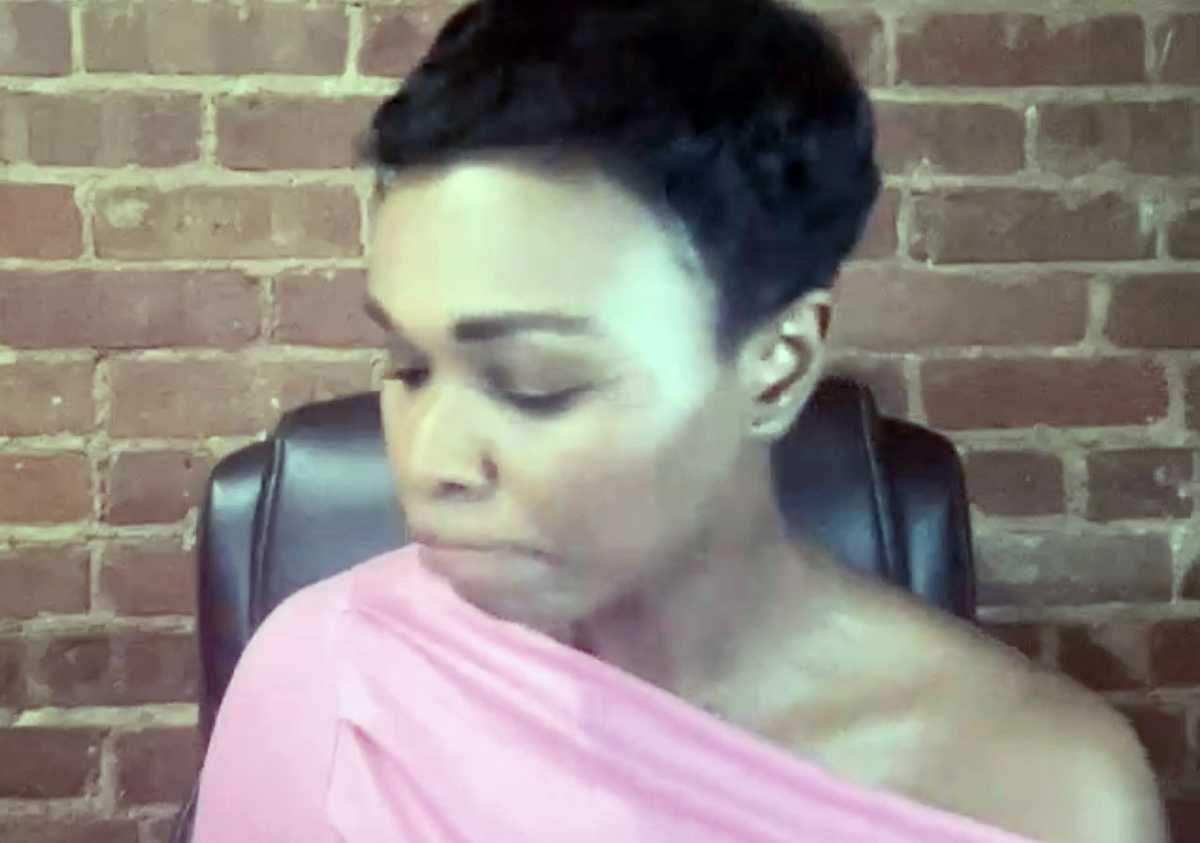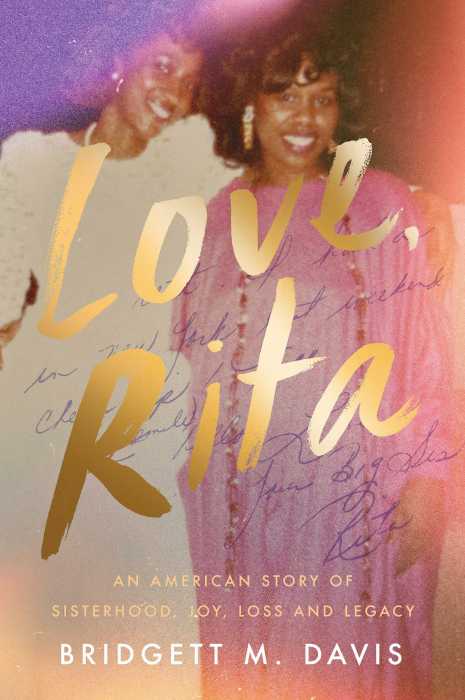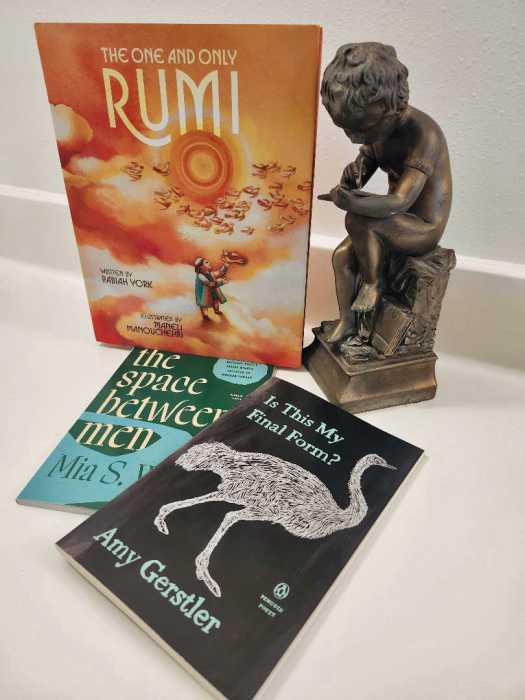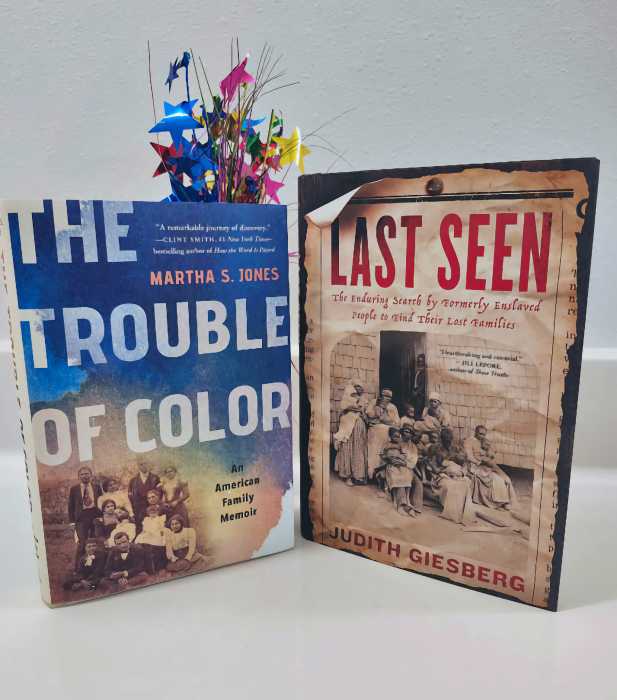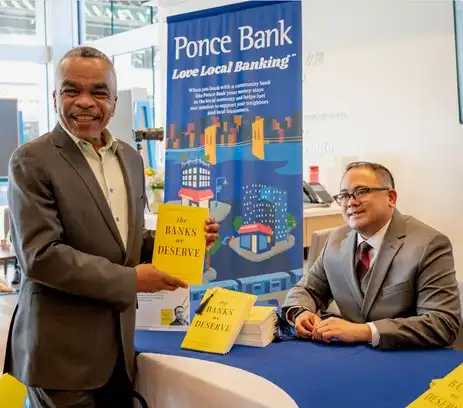On Jan. 9, Nigerian American journalist Rita Omokha (pronounced O-mo-cah) discussed her debut book, “Resist: How a Century of Young Black Activists Shaped America” (St. Martin’s Press/MacMillan, 2024), in a virtual conversation hosted by the Queens Public Library (QPL).
Omokha was motivated to write the book after George Floyd’s death on May 25, 2020, five days after graduating from Columbia University’s Graduate School of Journalism with her Masters of Science (M.S.) in Journalism. She is now an adjunct professor of Journalism there.
An excerpt of the book summary on MacMillan’s website states, “Rita charts the last century of civil rights activism, from the early years of renowned activist Ella Baker and others she inspired, … all the way to the current generation of young Black revolutionaries who walked American cities in the wake of the murders of countless Black people. Rita also draws on her experiences as a Black immigrant living in America, offering a unique and insightful perspective on this ongoing struggle for justice.
Omokha came to the States when she was very young. Although her memory of home is foggy, she does remember growing up in Benin City and having “a spirited, community-focused life full of family gatherings, traditions, and respect for elders.” That sense of connection and culture shaped her childhood.
When sharing the most significant influences on her career path, Omokha stated, “I stand on the shoulders of so many, from all those who have been in the trenches with me, my mentors and agents, to critical support systems such as my community at The Father’s Heart Ministries (an amazing nonprofit doing so much for the NYC community).”
The first book that sparked her interest in writing and made her see the value in her voice was “Their Eyes Were Watching God” by Zora Neale Hurston. For her, it was a magical, transformative book because Hurston’s use of broken English made her feel so seen as someone who spoke broken English (known as Pidgin English in Nigeria).
“My Christian faith has also been my main north star. It’s one thing to have a vision and calling; it’s another to act on it. I thank God daily — I’m not being hyperbolic — that I get to do what I do, but it’s only because I was risk-tolerant enough to step out on faith and rely on God for sustenance,” she added.
Omokha knew she wanted to pursue a career as a journalist and now an author since she was very young.
“I’ve always wanted to be a storyteller. Reading Hurston’s words all but cemented that for me in high school. I’m a reporter at heart — I think most authors have the fundamental skill set required to be a successful journalist—and I always knew I would want to expand that into various genres and tell stories of the vulnerable and those systematically overlooked in society,” she continued.
Omokha shared how she often felt torn between my two primary worlds—encased within her Nigerian bubble at home while sometimes out of place among Americans, especially Black Americans, who had a different history and set of experiences.
“There were moments when I felt I had to prove my Blackness or where I worried that my immigrant background made me a perpetual outsider, especially in the fight for racial justice. Could I even speak on it? Was I allowed? Navigating thoughts like that could be conflicting,” she explained.
“Black Americans and Black immigrants each bring valuable perspectives, and while our histories may differ, we face many of the same challenges and systemic barriers in America,” she added.
She hopes, in part, that the book showcases that there is strength in our diversity — and that by supporting each other, we can create a more inclusive vision of Black identity that embraces all of us.
In addition, Omokha said doing research for the book helped deepen her appreciation and love for Black America, as she and her brothers were raised here.
“We were true latchkey kids with all our goings and comings, and it was our neighbors who looked out for us. So, in many ways, I hadn’t fully appreciated how much they had our backs. When you’re steeped in something, it’s hard to understand its full relevance—to connect the dots of how critical it is. You can only connect the dots looking back; Resist helped me do that,” she said.
In 2020, victims of racism and police brutality included George Floyd (died on May 25), Breonna Taylor (died on March 13), and Ahmaud Arbery (died on Feb. 23). Omokha shared how impossible it is for her to share a message of hope every time this happens to Black people.
“Every time a new name is added to that dreadful list, it feels like we’re all dragged back to square one. It’s exhausting, and for the families—the survivors—it amplifies their own trauma, reopening wounds that haven’t had the chance to heal,” she stated.
According to Omokha, the process of writing the book revealed that we are not paying enough attention to the lessons of history collectively.
“History doesn’t repeat itself; we’re just ignoring its lessons. It’s meant to be our guide. It’s meant to be called upon. None of that is happening. As a result, we’re stuck in a cycle of deliberate subjugation—even still—by some in the majority. The only difference from yesteryear is that its form has simply shifted. So, it’s hard to feel a sense of hope. But like Lincoln once said, I am an optimist; I don’t see the point in being anything else. We need to all lean on that in this season of America,” she explained.
Omokha then spoke about the book’s impact on the people in her community and her students.
“While society continues to evolve from the age of agriculture to the industrial and information ages, what remains the best teacher is history. That’s what I walked away with—that’s what the young people I cover teach us: that the freedom we have today wasn’t free, that our democracy is precious and is worth protecting,” she continued.
Additionally, she spoke about the impact of book bans in several states around the country and how they impact the younger generation.
“Book bans limit their exposure to diverse ideas and critical thinking. It limits their educational growth. By restricting access to certain books — to certain truths — students miss the opportunity to engage with complex themes and different perspectives, which are crucial for developing analytical skills, for example.”
In the community, these bans further narrow the range of literary voices and ideas, stifling open dialogue and reducing engagement with national and international literature,” Omokha explained.
She hopes the book inspires readers, especially the rising generation in Nigeria, by showcasing the power of activism and the importance of standing up for justice, equality, and change. She also hopes it serves as a tool for cultivating leadership, resilience, and a commitment to positive change in their lives and communities.
“By highlighting the stories of unsung young Black activists and their allies, I hope they, too, can see the power of their voice and use it as their greatest weapon and ally. I hope they see that it just takes one person saying enough is enough to make a difference in their communities and demand better educational resources and support, regardless of their age or background,” she continued.
She added that the book can also help them better understand global struggles for freedom and equality, encouraging empathy, critical thinking, and a broader perspective on social issues.
“Through the stories highlighted, I hope they can see firsthand that change takes time — that lasting change is incremental — but ultimately, change is possible.”
Omokha is currently researching her second book. Although it is too soon to speak on it, it has long piqued her interest when it comes to ethnicity and identity.
Teaching is a gift for her, and she has been honored to do it at Columbia University, which made this journey possible.
Omokha looks forward to continuing to mentor and inspire the next generation of writers and thinkers.
“It’s not just about imparting knowledge but about encouraging students to find their own voices and trust in their unique perspectives,” she added.
Find all information on where to purchase Resist here: https://us.macmillan.com/books/9781250290984/resist/.
To stay updated on Omokha and her work, those interested can follow her on her social media platforms, which can be found on her website: https://www.ritaomokha.com/.
To stay updated on future events hosted by QPL, interested people can sign up for their newsletter on the library website: https://www.queenslibrary.org/.


